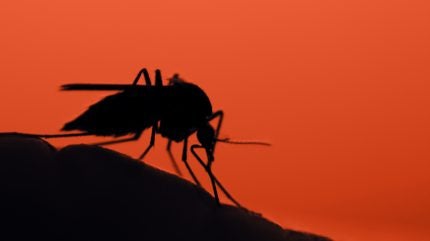
South African biotech Afrigen Biologics has secured a $6.2m grant from the Coalition for Epidemic Preparedness Innovations (CEPI) to develop the first mRNA-based vaccine against Rift Valley fever.
The funding will see Afrigen’s researchers work with the International Vaccine Institute (IVI) to advance the mRNA candidate through preclinical testing and into a Phase I clinical trial in humans. The trial will either be conducted in South Africa or another country affected by an outbreak of the mosquito-borne disease.

Discover B2B Marketing That Performs
Combine business intelligence and editorial excellence to reach engaged professionals across 36 leading media platforms.
Rift Valley fever was first identified more than 90 years ago in Kenya. The disease occurs in humans after contact with infected animals, meaning pastoral farmers are commonly affected due to frequent interactions with livestock, though bites from infected mosquitoes can also transmit the virus.
Whilst there are vaccines approved for animal use, none are yet marketed for human use. Around 1%-2% of infections are haemorrhagic, which can cause blindness, convulsions, encephalitis and bleeding. This more severe form of the disease has mortality rates in humans of around 50%.
The World Health Organization (WHO) has reported outbreaks in Egypt, Kenya, Somalia and Tanzania in the 20th century, however, Rift Valley fever cases occurred outside Africa for the first time in September 2000, following livestock trade to the Middle East.
Similar to malaria, there are concerns that Rift Valley fever rates could increase due to it being a climate-sensitive disease. CEPI stated the need for a new vaccine is due to the risk of the disease spreading to new areas or increasing in frequency or size due to changing weather events.

US Tariffs are shifting - will you react or anticipate?
Don’t let policy changes catch you off guard. Stay proactive with real-time data and expert analysis.
By GlobalDataWHO made Afrigen Biologics its mRNA Hub to scale mRNA vaccine development and production in low-income and middle-income countries. These regions are more adversely affected by infectious disease outbreaks, especially from mosquito-borne viruses.
CEPI’s CEO Dr Richard Hatchett said: “A safe and effective Rift Valley fever mRNA vaccine made in Africa, for Africa, raises the bar in our response to future Rift Valley fever outbreaks, and paves the way to make rapid response mRNA vaccines against similar viruses that could emerge on the continent or in other low- and middle-income countries.”
Although Afrigen’s candidate is the first mRNA-based vaccine for Rift Valley fever funded by CEPI, the organisation has previously funded further research. This includes a candidate developed at the University of Oxford, which will be evaluated in a Phase II clinical trial in Kenya, with CEPI providing $3.7m in funding for the study.
The funding for Rift Valley fever comes in the same week as Tanzania confirmed an outbreak of Marburg virus, another haemorrhagic illness for which there are also no approved vaccines.





